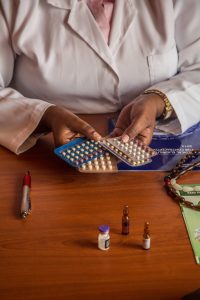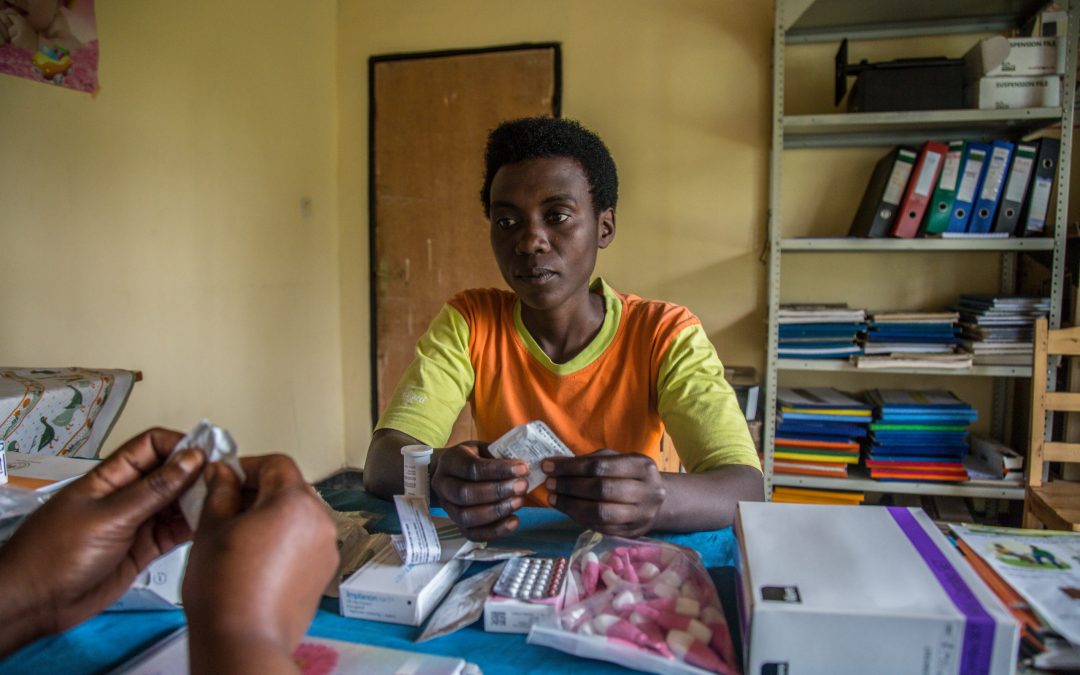Over 60% of Africa’s population is under 25 years old. That makes it the world’s youngest region! Advancing access to family planning for young women and girls is consistently shown to elevate society and lead to significant economic gains. Family planning has made huge strides since the International Conference on Population and Development (ICPD) in Cairo in 1994, but DSW is looking ahead to 2030. We will continue to fight for all youth to have full control over their own future and lead self-determined lives!
Last year, before the onset of the COVID-19 pandemic, more women and girls in low-income countries were gaining access to family planning than ever before. Surveying the world’s 69 lowest-income countries, it was found that 314 million women and girls use modern contraception, with 53 million new users in the last seven years. In Kenya, 6.1 million women reported using modern methods, an increase of 2 million since 2012. Eastern and Southern Africa experienced the greatest increase in modern contraception prevalence overall, rising by 7%.
A November 2019 report from Family Planning 2020 (FP2020) indicated that 2.4 million unintended pregnancies were prevented and 8,800 maternal deaths had been adverted as a result of modern contraceptive use. But there are over 926 million women of reproductive age across the 69 surveyed countries, and this number is expected to surpass 1 billion in 2025. This highlights the urgent need for access to family planning information and services for all!
Supply chain disruptions and the refocussing of health resources to fight COVID-19, as well as lockdowns, travel restrictions and fear of infection prevent women and girls from accessing the family planning care they need. Seven months after COVID-19 was declared a pandemic, millions of women and girls around the world have lost access to contraceptives.
Across the 37 countries where Marie Stopes International (MSI) works, almost 2 million fewer women accessed family planning services between January and June 2020 compared to the same period in 2019, resulting in an estimated 900,000 additional unintended pregnancies and over 3,000 additional pregnancy-related deaths. The UNFPA warns that this number could increase to 7 million unintended pregnancies worldwide.
Ahead of World Contraception Day on September 26, the Special Rapporteurs and Working Groups, part of the Special Procedures of the Human Rights Council, the largest body of independent experts in the UN Human Rights system, said, “The COVID-19 pandemic has had an impact on family planning services. Production has been cut and supply chains have been disrupted. Clinics have closed or limited their services, especially in countries with limited resources, and women and adolescent girls cannot get to trained heath care providers.”
 Even in times of crisis such as this, women and girls’ bodily autonomy must be upheld. At DSW, we want a world where everyone in need has access to a full range of modern family planning options.
Even in times of crisis such as this, women and girls’ bodily autonomy must be upheld. At DSW, we want a world where everyone in need has access to a full range of modern family planning options.
For more on where we stand, read our interview with the two original drivers of World Contraception Day, Jan Kreutzberg, DSW Executive Director, and Klaus Brill, Former Vice President of Bayer Healthcare Pharmaceuticals.
*
Photos by Yagazie Emezi.

